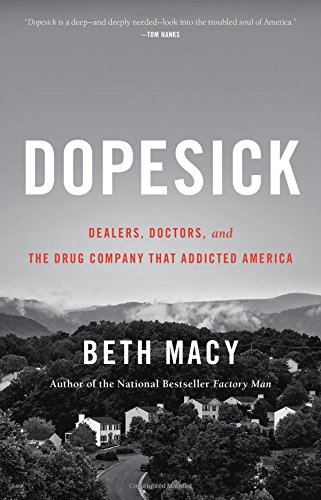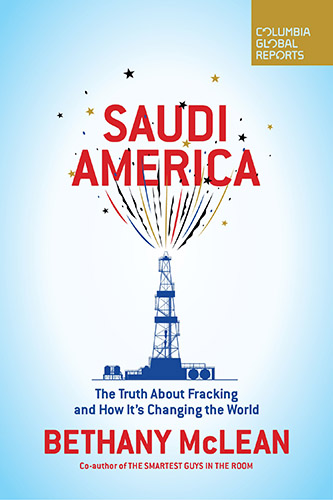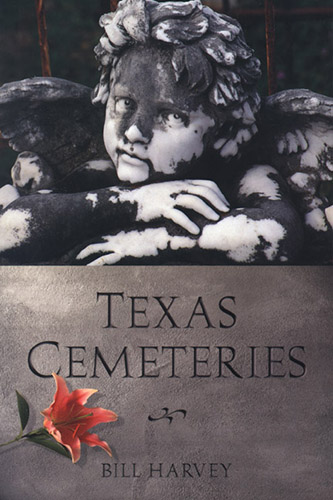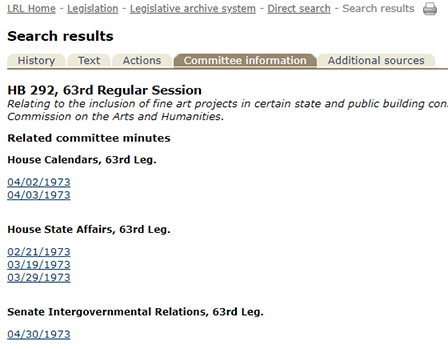Check out and delivery of New & Noteworthy titles is available to legislative staff in Capitol and District offices. To arrange check out and delivery of any of these items, you can submit an online request through the New & Noteworthy page on our website, contact the library at 512-463-1252, or use our PDF request form.

1. American Fix: Inside the Opioid Addiction Crisis — and How to End It
By Ryan Hampton
Presents a new agenda for addressing the opioid crisis from the perspective of an addiction recovery activist and former opioid user. Discusses the challenges addicts face, the drawbacks of current treatments, and the roles of politics and large pharmaceutical companies. Challenges the decades-old recovery model and offers a comprehensive plan of action to take on the crisis and fix it.
All Points Books, 2018. 290 pages.
362.29 H189A 2018

2. Dopesick: Dealers, Doctors, and the Drug Company that Addicted America
By Beth Macy
Weaves together stories from drug abusers and their families, dealers, doctors, and pharmaceutical companies, to explain how opioid addiction has come to afflict American communities across geographic, race, gender, and class lines. Provides historical context starting in the late 1800s for opioid abuse and treatment. Describes interventions that have been proven to work, such as drug courts, medication-assisted treatment [MAT], and drug monitoring programs to promote responsible prescribing practices.
Little, Brown and Company, 2018. 311 pages.
362.290973 M259D 2018

3. Saudi America: The Truth About Fracking and How It's Changing the World
By Bethany McLean
Examines the cycles of the U.S. oil industry and the development of hydraulic fracturing and the shale revolution, particularly in the Permian Basin in Texas. Profiles fracking pioneer Aubrey McClendon, CEO of Chesapeake Energy.
Columbia Global Reports, 2018. 138 pages.
333.8230973 M132S 2018

4. Shale Boom: The Barnett Shale Play and Fort Worth
By Diana Davids Hinton
Profiles the development and proliferation of fracking and its impact on the Fort Worth area and the petroleum industry. Chronicles the rise of the Barnett Shale boom and the factors that led to its eventual bust.
TCU Press, 2018. 229 pages.
333.8 H597S 2018

5. Texas Ethics Laws: An Annotated Guide to Lobby and Campaign Finance Laws in Texas
By Andrew Cates
Provides text of Texas campaign finance and lobby laws along with pertinent primary and secondary sources that are illustrative of the statutes' applications. Features cross-references to Texas Ethics Commission advisory opinions, Attorney General opinions, case law, practice notes, and the Texas Administrative Code.
Independently published, 2018. 467 pages.
328.33 C283T 2018


6. Texas Cemeteries: The Resting Places of Famous, Infamous, and Just Plain Interesting Texans
By Bill Harvey
Explores the final resting places of notable and fascinating Texans by highlighting Texas cemeteries. Profiles the stories of individuals who were significant figures in Texas history or who made important cultural contributions to the state. Presents heroes and villains, including activists, outlaws, educators, athletes, artists, entrepreneurs, politicians, veterans, and more.
University of Texas Press, 2003. 274 pages.
976.4 H262T 2003



